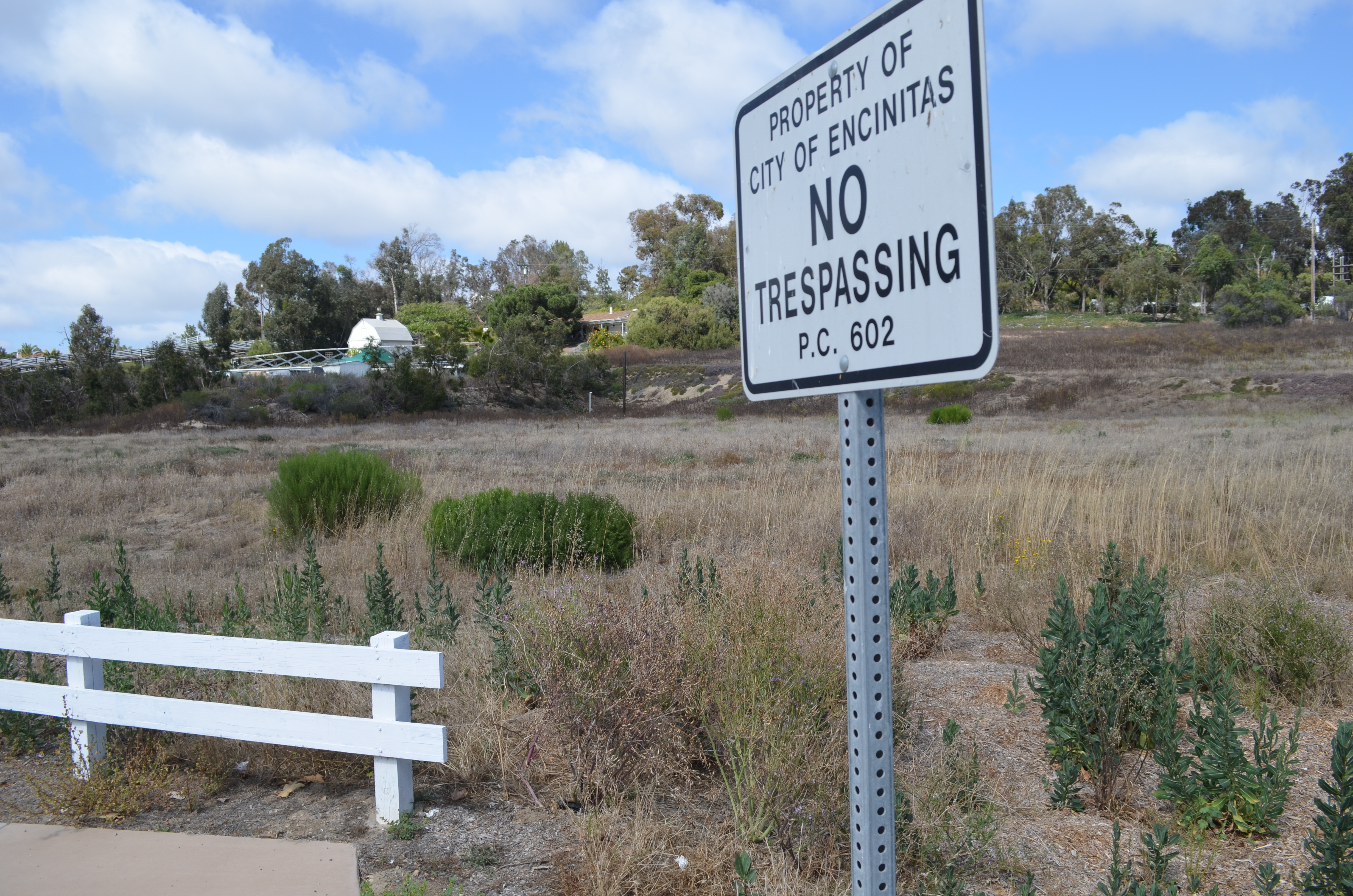ENCINITAS — Encinitas is moving forward with its affordable housing plans, including two sites that have generated controversy from the public and on the dais.
Dozens of people, some donning yellow boutonnieres, packed the City Council chambers on April 5 to lobby the council to remove a 7.6-acre city-owned site on Quail Gardens Drive known as “L-7” from consideration for the housing element.
They argued that affordable housing would not be appropriate for the semi-rural community, and that it would exacerbate existing traffic and safety issues on Quail Gardens Drive. Currently, the city’s zoning would allow seven units on the site. The housing element zoning would allow for up to 190 units, which residents said was unacceptable.
After hours of testimony and debate, the council voted to keep the property on the list after a motion by Councilman Mark Muir and Tony Kranz to pull it off of the list was voted down by Mayor Catherine Blakespear and council members Tasha Boerner Horvath and Joe Mosca.
Many of the residents who spoke implored the council to rezone the property, which is currently zoned for one home per acre, to three units per acre and either sell or swap the land with an interested property holder.
Currently, the city is seeking proposals for affordable housing developments on the property. After a month, they have not received a land-swap proposal, said Blakespear, who said the city could still entertain a swap even if they kept the property on the housing element list.
Blakespear said taking the only vacant city-owned land off of the list would send a bad message to regulators and the courts, where the city is fighting three lawsuits because of its lack of compliance with state law.
“If we are saying in lawsuits that we care about housing and we don’t use our one site, we have a credibility problem,” Blakespear said. “For my vote, I need to walk the walk.”
Kranz, however, said the city would also be giving lip service to its frequent rallying cry of protecting community character if they moved forward with the site.
“Anyone who votes for this will have a hard time with credibility when it comes to that particular phrase (protect community character),” Kranz said.
The City Council also decided to keep a second plot of land, currently occupied by flower grower Dramm & Echter, on the housing element property list, despite objections from Kranz and Muir about building homes on the city’s largest remaining agriculturally zoned property.
Dramm & Echter owner Bob Echter has proposed a so-called ‘agrihood,’ which would marry housing and agriculture within the same community.
Muir argued that voters in the past overwhelmingly opposed residential development on farmland, and that without any information about the proposal, the city could essentially be endorsing a “neighborhood with a community farm.”
“A neighborhood is a neighborhood and ag is ag,” Muir said. “I am all supportive of agrihoods in residential planned communities, but I am not OK with converting ag in perpetuity into housing with a community garden.”
Encinitas, one of the few cities statewide without a certified housing element — the document that outlines the city’s plans for meeting regionally mandated affordable housing goals — has struggled to find a plan that would pass muster with voters.
The city’s most recent attempt, Measure T, failed at the ballot in November 2016. A City Council subcommittee has been working since last February on a plan that would succeed in the November 2018 general election, but the current attempt has been frustrated by recent changes in state law.
The council is expected to vote on the final housing plan to submit to voters at its April 18 meeting.



